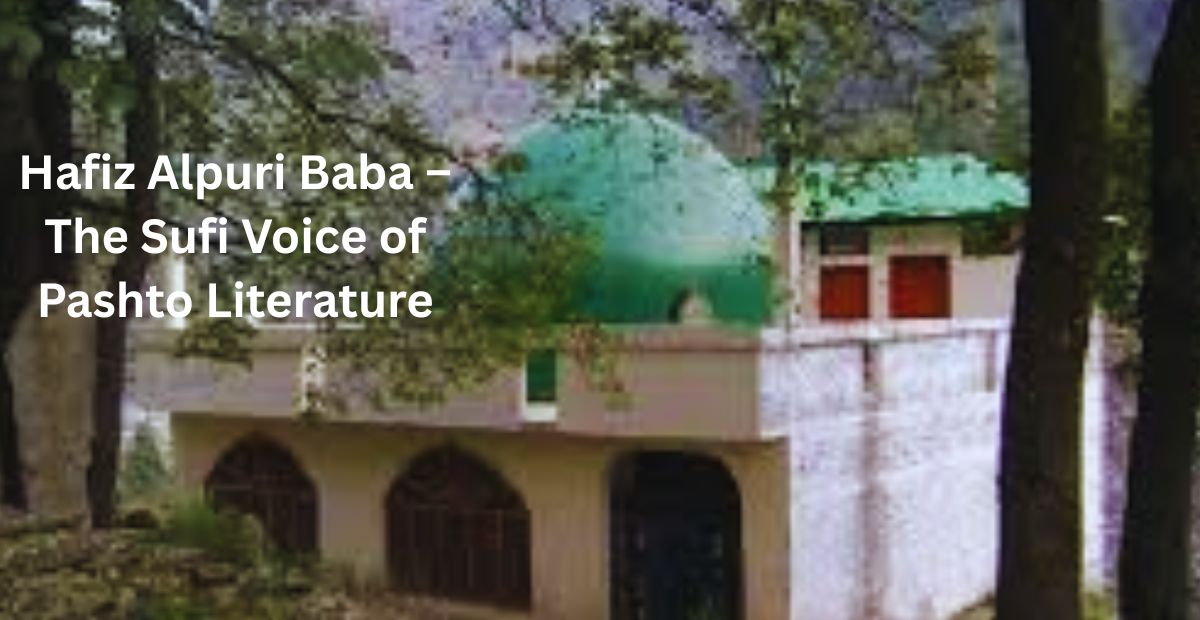Meta Description: Discover the life, poetry, and spiritual legacy of Hafiz Alpuri Baba, a revered Sufi Pashto poet from Shangla. Learn about his literary contributions and lasting influence on Pashto culture.
Introduction
Hafiz Alpuri Baba (Pashto: حافظ الپوري), born Abdul Samad Yousafzai in 1670, is celebrated as one of the most prominent Sufi poets in Pashto literature. Known for his deep spiritual insight and poetic mastery, he has often been compared to the legendary Rahman Baba. His timeless poetry, compiled in Dewan-e-Hafiz-e-Alpuri, continues to inspire generations of Pashto readers and scholars.
Early Life and Background
Hafiz Alpuri Baba was born in Ghwarband valley of Alpuri, nestled in the beautiful Shangla District of Khyber Pakhtunkhwa, Pakistan. He hailed from the well-known Mandan Yousafzai tribe, a significant lineage among the Pashtun people.
As a child, he showed exceptional spiritual and intellectual potential. He memorized the Holy Quran at a young age, earning him the title “Hafiz”. His early education took place in Khwaza Khela, an important Islamic learning center of that era. This strong foundation in Islamic teachings deeply influenced his later works as a poet and spiritual guide.
Literary Legacy: Dewan-e-Hafiz-e-Alpuri
The heart of Hafiz Alpuri’s legacy lies in his poetry collection known as “Dewan-e-Hafiz-e-Alpuri.” This work was published posthumously in 1927, decades after his death in 1790. His poetry is systematically divided into four chapters, each reflecting a vital dimension of his Sufi thought:
- Oneness of God and Prophethood
- True Love and Devotion to God
- Code and Conduct of Life
- Counsel and Moral Advice
His verses are rich with teachings that promote virtue, justice, love, and humility. One of his most remarkable contributions to Pashto literature is his early use of fables and legends, a style that later became common in traditional storytelling and poetry across the region.
Thematic Depth and Sufi Influence
Hafiz Alpuri’s poetry goes beyond mere aesthetics; it serves as a spiritual guidebook. He emphasized righteousness, condemned wrongdoing, and encouraged inner purification. His style reflects a deep connection with Islamic Sufi traditions, rooted in divine love and the pursuit of truth.
His message was simple yet profound—live a life of piety, purpose, and reflection. This timeless appeal continues to attract both religious scholars and literary critics.
Research and Recognition
The significance of Hafiz Alpuri’s poetry has been recognized by scholars over the years. In particular, Mr. Shaukatullah, a Ph.D. researcher, submitted a comprehensive thesis titled “The Impact of Arabic Language and Its Literature on the Poetry of Hafiz Al-Puri” at the University of Peshawar. His work highlights how Hafiz Alpuri blended Arabic-Islamic thought with native Pashto traditions, enriching both literary and religious discourse.
Legacy and Resting Place
Hafiz Alpuri passed away in 1790 and was laid to rest in his beloved homeland of Alpuri, Shangla. His tomb remains a place of spiritual reflection and is visited by poetry lovers and devotees alike.
Conclusion
Hafiz Alpuri Baba stands tall among the great spiritual poets of Pashtun history. His ability to blend Sufi wisdom with Pashto poetic traditions set him apart as a pioneer. Through Dewan-e-Hafiz-e-Alpuri, he left behind not just poetry but a moral compass for generations to come.
If you’re interested in the spiritual and literary heritage of the Pashtun people, Hafiz Alpuri’s work is a must-read. His poetry continues to echo the universal truths of love, peace, and faith.
Keywords: Hafiz Alpuri, Dewan-e-Hafiz-e-Alpuri, Pashto Sufi poetry, Pashto literature, Shangla poets, Abdul Samad Yousafzai, Rahman Baba, Pashtun heritage
